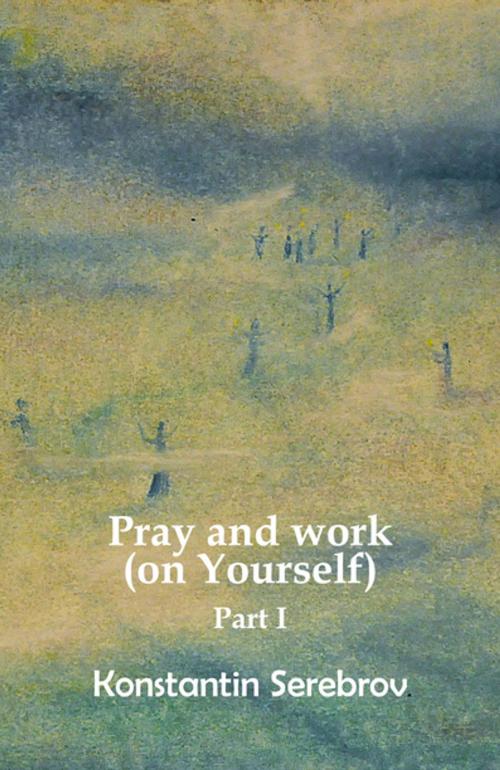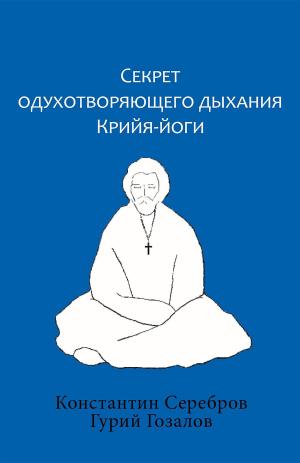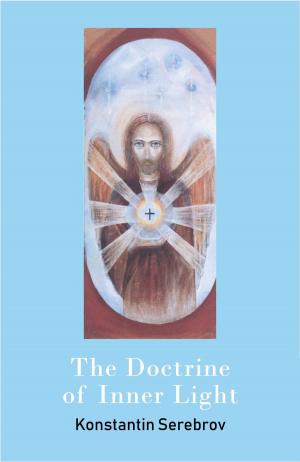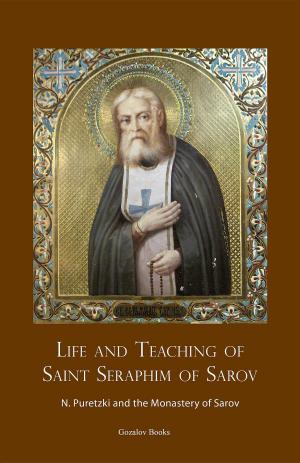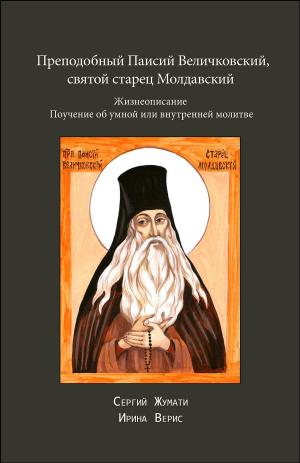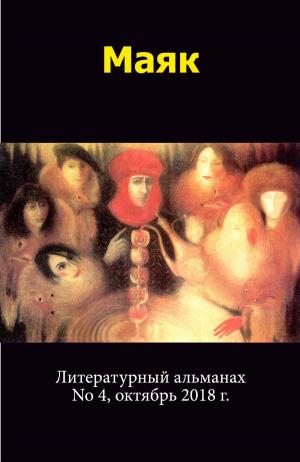Pray and work (on Yourself)
Part I
Nonfiction, Religion & Spirituality, Christianity, Church, Orthodox Churches, Inspiration & Meditation, Mysticism, Health & Well Being, Self Help, Meditations| Author: | Konstantin Serebrov | ISBN: | 9789077820643 |
| Publisher: | Serebrov Boeken | Publication: | January 15, 2019 |
| Imprint: | Serebrov Boeken | Language: | English |
| Author: | Konstantin Serebrov |
| ISBN: | 9789077820643 |
| Publisher: | Serebrov Boeken |
| Publication: | January 15, 2019 |
| Imprint: | Serebrov Boeken |
| Language: | English |
Man can come closer to God through work on himself, that is working on purifying his heart and soul, his inner world, making through this work still more room available for Him. Both ancient and modern history of Christianity prove that only outwardly following the rules of the Christian confessions and congregations, the monastic and sacerdotal vows, the long, richly decorated vestments, long prayer services, fasting and works of obedience do not guarantee protection from or endurance during temptations and ordeals. Often, on the contrary they increase passions and hypocrisy… Not seldom the scandals in life of all Christian confessions and sects without any exceptions, come to the surface… On the path which my Master has been following the focus lies in one’s work on oneself, so that you could call this path the ‘path of the worker’. Work on oneself consists mostly of spiritual practices which wake up man’s soul in this illusory world towards spiritual reality and keep it awake, in the sense which Gurdjieff attributed to this word. This path doesn’t demand vows and renunciation of the world, after Jesus’ word: ‘But I say unto you, Swear not at all’ (Mt.5:34). It doesn’t ‘bind heavy burdens and grievous to be borne’ on the follower. It isn’t demanded from man to be an exemplary citizen, family man or woman, spouse, son or daughter, but it is asked to ‘take heed of yourself,’ as St. Sergius of Radonezh says, that is study yourself and know what is in you, what comes in and what comes out of you.
‘Pray and work,’ says St. Benedict of Nursia. ‘Work’ must be understood not only as work with one’s hands but as work on oneself, which helps to rid one’s mind and soul from the consequences of committed deadly sins and to restrain one from committing them again, as the psalm commands: ‘depart from evil’(Ps.34:14).
I’ve written this book with the help of the Philocalia, a collection of treatises by Christian holy fathers, which has been translated from Greek into Slavonic by Saint Paisi Velichkovski and the group of monks from his monastery. I have translated / adapted their spiritual instructions into modern language, hoping to make them more accessible to the reader.
Konstantin Serebrov,
Moscow, June 2006
Man can come closer to God through work on himself, that is working on purifying his heart and soul, his inner world, making through this work still more room available for Him. Both ancient and modern history of Christianity prove that only outwardly following the rules of the Christian confessions and congregations, the monastic and sacerdotal vows, the long, richly decorated vestments, long prayer services, fasting and works of obedience do not guarantee protection from or endurance during temptations and ordeals. Often, on the contrary they increase passions and hypocrisy… Not seldom the scandals in life of all Christian confessions and sects without any exceptions, come to the surface… On the path which my Master has been following the focus lies in one’s work on oneself, so that you could call this path the ‘path of the worker’. Work on oneself consists mostly of spiritual practices which wake up man’s soul in this illusory world towards spiritual reality and keep it awake, in the sense which Gurdjieff attributed to this word. This path doesn’t demand vows and renunciation of the world, after Jesus’ word: ‘But I say unto you, Swear not at all’ (Mt.5:34). It doesn’t ‘bind heavy burdens and grievous to be borne’ on the follower. It isn’t demanded from man to be an exemplary citizen, family man or woman, spouse, son or daughter, but it is asked to ‘take heed of yourself,’ as St. Sergius of Radonezh says, that is study yourself and know what is in you, what comes in and what comes out of you.
‘Pray and work,’ says St. Benedict of Nursia. ‘Work’ must be understood not only as work with one’s hands but as work on oneself, which helps to rid one’s mind and soul from the consequences of committed deadly sins and to restrain one from committing them again, as the psalm commands: ‘depart from evil’(Ps.34:14).
I’ve written this book with the help of the Philocalia, a collection of treatises by Christian holy fathers, which has been translated from Greek into Slavonic by Saint Paisi Velichkovski and the group of monks from his monastery. I have translated / adapted their spiritual instructions into modern language, hoping to make them more accessible to the reader.
Konstantin Serebrov,
Moscow, June 2006
